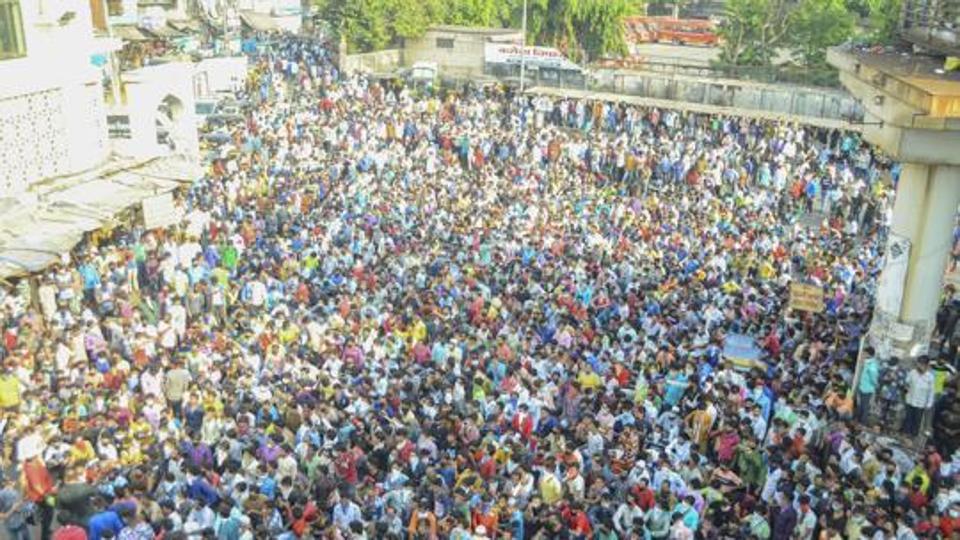prasad1
Active member
The dilemma with migrants
Provide income and food support; communicate perils of travel
Hindustan Times

Migrant workers gather in large number at Bandra, Mumbai, April 14, 2020(Zoya Lozba/HTPhoto)
On Tuesday afternoon, just hours after Prime Minister Narendra Modi announced the extension of the lockdown for another 19 days, hundreds — some reports indicate thousands — of migrant workers made their way to Mumbai’s Bandra (West) station. They had been waiting for the lockdown to end — and had assumed that they could return home. Some reports say this assumption was based on an erroneous news report about special trains. With restrictions in place, including on inter-state bus and rail travel, this was not to happen. The same day, in Surat, hundreds of textile workers staged a sit-in, demanding that they be allowed to return home. This yearning is not new. Soon after Mr Modi declared the lockdown on March 24, hundreds of thousands of migrant workers began making their way home, some walking long distances to do so.
These large congregations of workers — at close proximity with each other — are disturbing. They represent a sense of desperation, which is emerging from economic suffering and emotional anxiety. They also undermine the principle of social distancing, for one infected person in any of these gatherings has the potential of infecting hundreds, who may then come in contact with hundreds of others. It requires one incident to begin another chain of transmission, which can set back India’s efforts in the battle against the pandemic.
And that is why a two-pronged approach is necessary to allay the anxieties of migrant workers. The first is recognising that they are economically insecure, without incomes, and often, without food. As Kerala finance minister Thomas Isaac pointed out, without income support, compliance with the restrictions will be low. The government needs to immediately expand its cash transfer measure — and include workers in the unorganised sector, perhaps even incentivising those who stay in camps for migrant workers, at least till May 3. The partial lifting of restrictions in areas less vulnerable to the infection after April 20, as notified by the home ministry, will help a segment of workers. But they need more direct financial and food support. There is a second element. Many workers are anxious to return home because they are frightened — of the disease, of staying alone in the city, of the fate of their families back home. Travel will mean a high degree of risk because social distancing norms cannot be enforced in trains and buses. Travel is also difficult because their home states are not receptive to these workers, given the fear that they may spread the infection in villages. These are all real constraints, but the issue requires more sensitive communication — and the announcement of measures which allay their anxieties and encourages migrant workers to stay where they are.

The dilemma with migrants
Provide income and food support; communicate perils of travel

